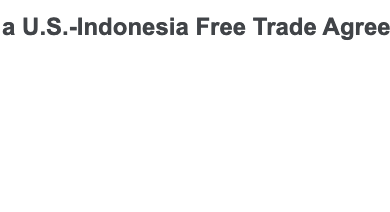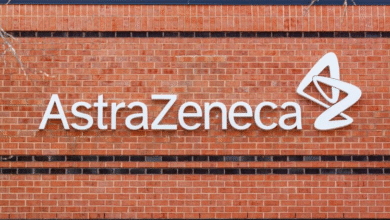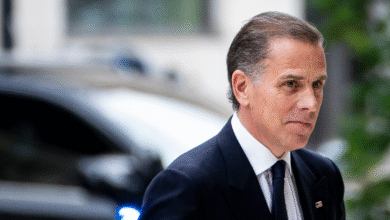Boulder Fire Attack: Soliman Charged with Multiple Crimes

The recent Boulder fire attack has shattered the tranquility of the Colorado city, as authorities grapple with the alarming rise in violent incidents fueled by intolerance. Mohamed Sabry Soliman, the primary suspect, now faces multiple serious charges, including attempted murder and a federal hate crime, following his alarming assault on pro-Israel demonstrators. Utilizing Molotov cocktails as weapons, he targeted individuals expressing political support, highlighting the intersection of hate and political activism in today’s society. The incident, which left eight people injured, serves as a stark reminder of the dangerous potential that resides within individuals driven by extremist ideologies. As the legal proceedings unfold, the community of Boulder and beyond braves the repercussions of this hate-fueled attack, calling for justice and healing amidst the chaos.
In recent news, the attempts at violent disruption during a peaceful gathering in Boulder, Colorado, caught national attention. The suspect in this chaotic event, a man named Mohamed Sabry Soliman, has been charged with grave offenses, including attempted homicide and a hate crime, reflecting a disturbing trend of aggression towards political demonstrators. Engaging in an attack that involved the use of incendiary devices, Soliman’s actions have ignited fierce discussions around the nature of fuelled hatred and ideological conflicts. The Boulder community is now recovering from the shock of this attempted assault, which not only injured participants but has also heightened concerns regarding public safety and the implications of hate-driven violence. As investigations continue, the dialogue surrounding the responsibilities of citizens towards one another gains urgency.
Understanding the Boulder Fire Attack and Charges Against Mohamed Sabry Soliman
The Boulder fire attack, an alarming incident that occurred during a demonstration in Boulder, Colorado, is now under thorough investigation following the arrest of the suspect, Mohamed Sabry Soliman. Charged with multiple counts of attempted murder, Soliman is also facing a federal hate crime charge, intensifying the scrutiny surrounding this case. Documented evidence shows that Soliman allegedly used Molotov cocktails against a pro-Israel crowd, a premeditated act tied to his expressed hatred of Zionist individuals. Detailed accounts indicate that he had been planning this attack for over a year and targeted demonstrators specifically for their political stance.
Details from the federal complaint reveal that Soliman had amassed a substantial arsenal for his attack, including fourteen Molotov cocktails found near the scene. His motivations stem from deep-seated animosities towards groups associated with Israel, leading to grave consequences for the victims involved. Prosecutors emphasize the seriousness of the charges, seeking a high cash bond for Soliman in light of the potential threat he poses to public safety. This brutal act of violence underscores a broader concern regarding hate crimes and domestic terrorism in America, particularly when fueled by political extremism.
Implications of Hate Crime Charges in the Boulder Incident
The hate crime charge against Mohamed Sabry Soliman adds a complex layer to the Boulder fire attack case, as federal law defines hate crimes as offenses motivated by bias against race, religion, or national origin. Soliman’s actions, reportedly driven by his extreme anti-Zionist beliefs, illustrate how deeply entrenched ideologies can lead to violence. The legal ramifications of hate crime charges are significant, as they often result in harsher penalties compared to non-bias-motivated offenses. This case not only brings to the forefront issues of public safety and legal accountability but also highlights the critical need for addressing underlying social tensions.
As communities recover from acts of violence motivated by hate, the legal system plays a vital role in both punishment and prevention. Prosecutors are expected to pursue the hate crime aspects vigorously, ensuring that those who commit such acts are held accountable. The implications of this case extend beyond the courtroom, potentially affecting how law enforcement and communities respond to and combat hate-fueled violence in the future. It serves as a reminder of the responsibility to foster dialogue and understanding among diverse groups to prevent further tragedies.
The Role of Political Rhetoric in the Boulder Fire Attack
The Boulder fire attack gained additional national attention following reactions from political figures, including President Donald Trump, who publicly condemned the violence and pointed fingers at immigration policies under President Biden. Such statements often resonate with the public, framing the narrative surrounding an incident that reflects broader tensions in society. Political rhetoric can either exacerbate existing divisions or serve as a catalyst for healing, depending on how leaders choose to communicate the events and their underlying causes.
In this instance, Trump’s comments underscore the relationship between immigration policies and perceptions of national security. He implied that Soliman’s illegal entry into the U.S. was a consequence of lax border policies, which further flames the ongoing debate about immigration reform and national safety. This intertwining of high-profile incidents with political discourse can influence public sentiment, leading to increased scrutiny of policies and community responses regarding immigration and hate crimes in America.
Investigating the History of Mohamed Sabry Soliman
Mohamed Sabry Soliman’s background is raising questions about how someone could undertake such a violent act against innocent demonstrators. Reports indicate that he entered the United States illegally, remaining under an expired work permit, which has prompted discussions about the implications of immigration status and oversight in the context of criminal behavior. Understanding Soliman’s history may provide context for his actions and motivations, highlighting potential warning signs that were overlooked prior to this incident.
His stated resentment towards the Zionist movement, combined with his preparation for this attack, points to a pre-existing radicalization process. Investigators are likely delving into Soliman’s personal history, social connections, and influences to ascertain how he developed his extremist views. This examination is crucial, not only to hold him accountable but also to identify and mitigate similar threats in the future, focusing on community education and intervention programs to address the risk of radicalization.
Victims of the Boulder Fire Attack: Recovery and Support
The victims of the Boulder fire attack are now grappling with the physical and emotional aftermath of the violent incident. Eight individuals were hospitalized due to burns and other injuries, each bearing the scars of a hate-fueled attack meant to instill fear and disrupt a peaceful demonstration. Recovery from such traumatic experiences is often prolonged and requires not just medical treatment but also psychological support to deal with the emotional fallout of being targeted for their beliefs.
Communities play a pivotal role in supporting victims and fostering healing after tragic events. Local organizations and advocacy groups are likely mobilizing to provide assistance, including counseling and resources for victims and their families. Ensuring that these individuals do not suffer in silence is vital in the healing process, as their shared experiences can serve as a powerful catalyst for community solidarity and resilience against hate.
Legal Proceedings and Potential Outcomes for Soliman
As the Boulder fire attack case unfolds in court, Mohamed Sabry Soliman faces serious legal repercussions that could lead to significant prison time if convicted on all counts. With charges including multiple counts of attempted murder and federal hate crime violations, the prosecution is expected to pursue a tough stance, advocating for substantial penalties that reflect the severity of the crime. The potential outcomes of this case could set a precedent for how similar hate crimes are prosecuted in the future.
The courtroom proceedings will be closely monitored, not only for their judicial implications but also for their societal impact. The case serves as a litmus test for the effectiveness of current laws addressing hate crimes and the robustness of measures in place to protect communities from politically motivated violence. As the legal landscape evolves, this incident may provoke broader conversations about public safety, community vigilance, and the importance of combating hate-fueled ideologies.
Community Reactions to the Boulder Fire Attack
In the wake of the Boulder fire attack, community reactions have ranged from outrage to calls for solidarity among diverse groups. Demonstrators and local leaders have gathered to condemn the violence and to support the victims, emphasizing that such acts of hatred will not define their community. Vigorous public discussions about the underlying issues of hate crimes and domestic terrorism have emerged, urging citizens to come together regardless of their backgrounds.
Communities impacted by such hate-driven incidents often witness a surge in activism and support for initiatives aimed at fostering understanding and empathy among different cultural and political groups. Local rallies, fundraisers for victims, and educational campaigns about tolerance and resilience are likely to be organized as a response to the bombing. This grassroots activism represents a powerful counter-narrative to the fear incited by the attack, reinforcing the values of unity and respect in a diverse society.
Exploring Radicalization and Its Impact on Society
The Boulder fire attack underscores the critical issue of radicalization and its impact on individual behaviors and wider society. Soliman’s descent into extremism raises questions about how individuals can become motivated to commit acts of violence against others based on ideological differences. Understanding the pathways to radicalization, including online influences, personal grievances, and social isolation, is crucial in preventing similar acts in the future.
This incident opens the door for wider discussions about how communities can proactively combat radicalization by fostering dialogue, promoting education on tolerance, and creating environments where individuals feel valued and understood. Addressing the root causes of violent extremism is imperative for the safety and cohesion of society, demanding a concerted effort from educators, community leaders, and policymakers alike.
The Legal Narrative of Molotov Cocktails and Their Use in Hate Crimes
The use of Molotov cocktails in the Boulder fire attack marks an alarming continuation of regressive tactics employed in hate crimes across the United States. These incendiary devices not only amplify the intent to cause harm but also symbolize a level of premeditation indicative of serious extremist motivations. The choice to utilize such tactics aligns with a disturbing trend seen in various politically motivated attacks, prompting a need for serious legal scrutiny and legislative action.
Legal frameworks must evolve to adequately address the use of dangerous weapons like Molotov cocktails in hate crimes, as their deployment can lead to catastrophic outcomes for innocent victims. Case law surrounding the use of these devices, particularly in conjunction with hate crime legislation, will likely be tested in Soliman’s trial. As society grapples with the complex issues surrounding hate crimes, the legal discourse around incendiary weapons presents a critical area for reform and stricter enforcement.
Frequently Asked Questions
What charges does Mohamed Sabry Soliman face in relation to the Boulder fire attack?
Mohamed Sabry Soliman faces multiple serious charges stemming from the Boulder fire attack, including eight counts of attempted first-degree murder and additional counts of first-degree assault and possession of an incendiary device. He has also been charged federally with a hate crime related to race, religion, or national origin.
How did the Boulder fire attack reflect hate crime motivations?
The Boulder fire attack was motivated by hate, as the suspect, Mohamed Sabry Soliman, confessed to planning the attack because the demonstrators were supporting Israel. This act has been classified as a hate crime due to its targeting of individuals based on their perceived ethnicity and support for a specific political stance.
What were the methods used by Soliman during the Boulder fire attack?
During the Boulder fire attack, Mohamed Sabry Soliman used a makeshift flamethrower and threw Molotov cocktails at a pro-Israel crowd. The FBI affidavit noted that he had prepared these incendiary devices in advance and drove to Boulder specifically to execute his planned assault.
What injuries resulted from the Boulder fire attack on demonstrators?
The Boulder fire attack led to at least eight people being hospitalized with burns and other injuries, highlighting the severity and danger of the actions taken by suspect Mohamed Sabry Soliman.
What was the community’s response to the Boulder fire attack?
The Boulder fire attack has drawn widespread condemnation, including a statement from former President Donald Trump, who linked the incident to the current border policies. Community leaders and advocates have expressed outrage over the hate-filled motivations behind the attack and the need for addressing such acts of violence.
What impact has the Boulder fire attack had on discussions of hate crimes in the U.S.?
The Boulder fire attack has reignited discussions around hate crimes in the U.S., particularly regarding how such crimes are motivated by ethnic and political tensions. This incident underscores the need for stronger protections against hate-based violence and awareness about the implications of such attacks.
What legal consequences does Soliman face for the Boulder fire attack?
Facing multiple state and federal charges, including attempted murder and a federal hate crime charge, Mohamed Sabry Soliman could face significant prison time if convicted. Prosecutors are seeking to detain him without bail due to the gravity of his actions in the Boulder fire attack.
| Key Point | Details |
|---|---|
| Charges Against Soliman | Charged with multiple counts of attempted murder and a federal hate crime. |
| Nature of the Attack | Used a makeshift flamethrower and Molotov cocktails against pro-Israel demonstrators. |
| Conviction Details | Eight counts of attempted first-degree murder and assaults on at-risk victims. |
| Motive Behind the Attack | Planned the attack for over a year due to hatred towards Zionist groups. |
| Trump’s Response | Condemned the attack and blamed Biden’s border policy for allowing Soliman’s entry. |
| Soliman’s Status | In the U.S. illegally on an expired work permit. |
Summary
The Boulder fire attack has resulted in serious legal consequences for suspect Soliman, who faces multiple charges, including attempted murder and hate crimes. This tragic incident highlights rising tensions surrounding geopolitical issues and underscores the urgent need for effective community safety measures. As investigations continue, the repercussions will likely resonate beyond Boulder, affecting broader discussions on immigration policy and violence.




